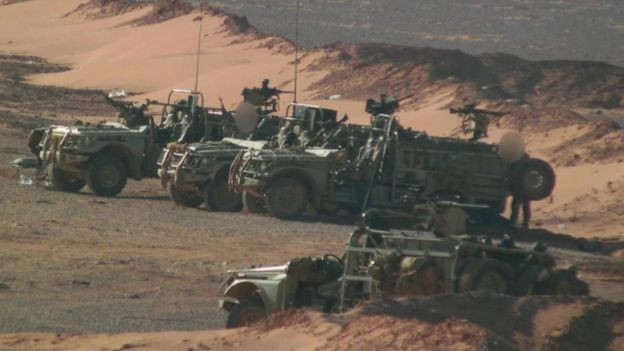SAS rescues British ISIS orphans from Syria
An SAS team escorted members of the Foreign Office into Syria to rescue three orphan British children born to ISIS parents.
The United Kingdom stripped over 100 British nationals who joined the Islamic State of Iraq and Syria (ISIS) of their citizenship. However, Foreign Secretary Dominic Raab confirmed that "innocent" children born to ex-British parents would be repatriated. The first attempt at the repatriation saw a Special Air Service (SAS) team escort Foreign Office staff into Syria to rescue three British ISIS orphans.
The details of the mission remain a secret since there are more missions planned to rescue more children from camps in Syria. However, Raab did address the mission and confirm that three children had been retrieved from Syria. Raab said that the privacy of the children would be maintained to allow them to have a "normal life" back in the UK.
Conditions in Syria have made it unsafe for Foreign Office staff to set up operations with the country. Alison Griffin, of Save the Children, pointed out that there are more than 60 British children languishing in camps all over Syria. She claims that the conditions in the camps ensure that none of the children would survive to see the spring of 2020 if they are left there.

While the UK still maintains its stance of not allowing ex-British ISIS members to return, children born to those parents might have a shot at life in the UK. Raab was clear that the children who pose "no security threat" to the nation would be brought to the UK.
The Sun reported that in the absence of Foreign Office staff in Syria, SAS had to escort the rescue operation. Using armoured vehicles, SAS took a few Foreign Office staff into the threat zone. Kurdish administration cooperated with the Foreign Office staff and allowed them to take the children.
Any details regarding the children, apart from the fact that they are orphans, remain highly classified for their safety. The Mirror pointed out that former Brexit secretary David Davis had shown his concern that the British children left in Syria are at risk of becoming terrorists.
The secret repatriation mission might be the first of a number of such rescue missions.
© Copyright IBTimes 2025. All rights reserved.





















